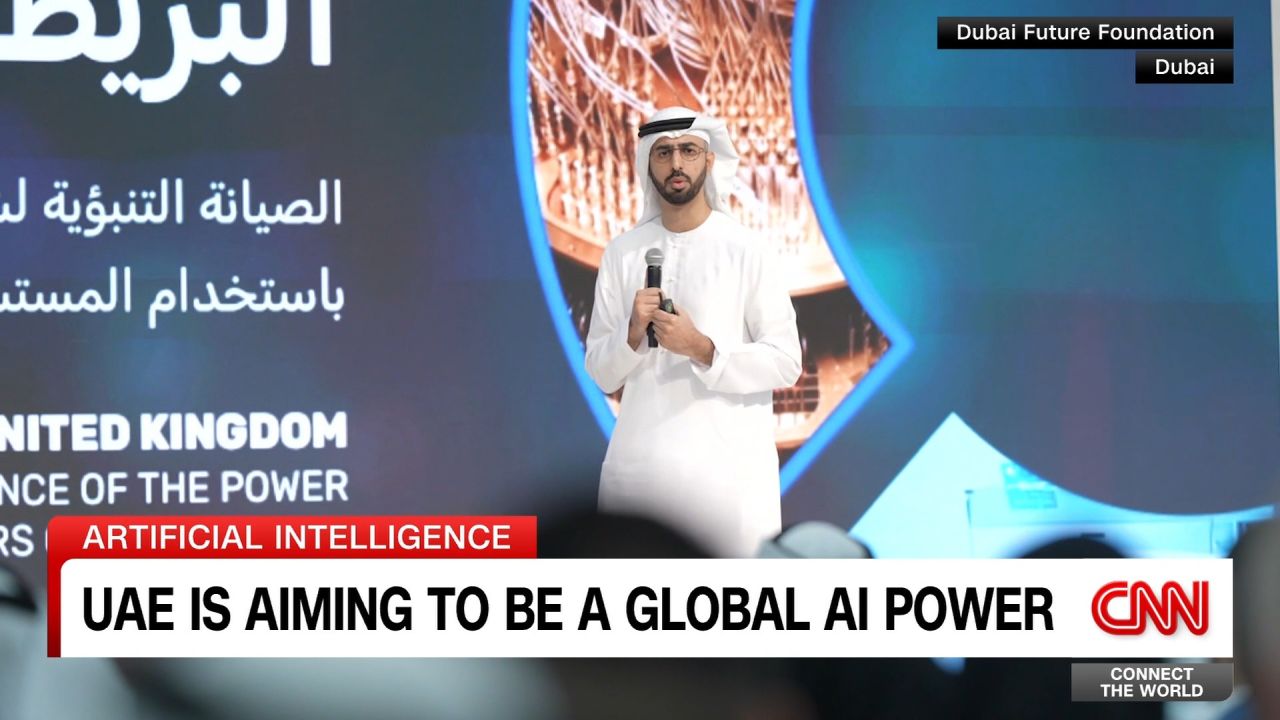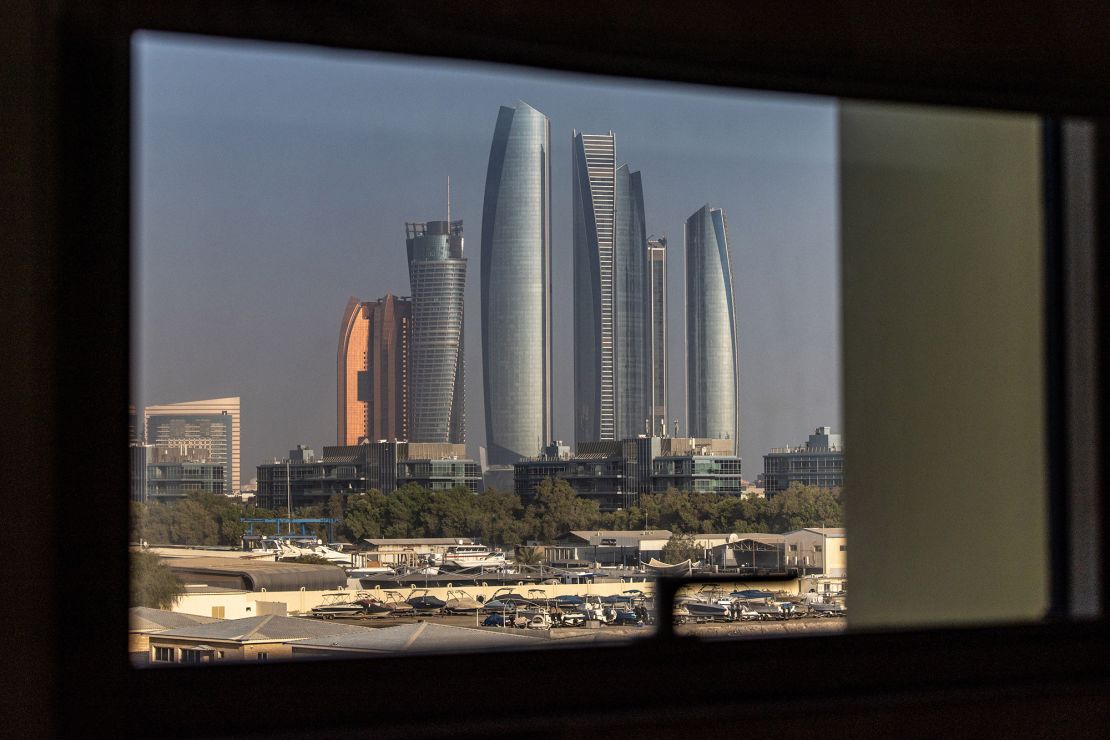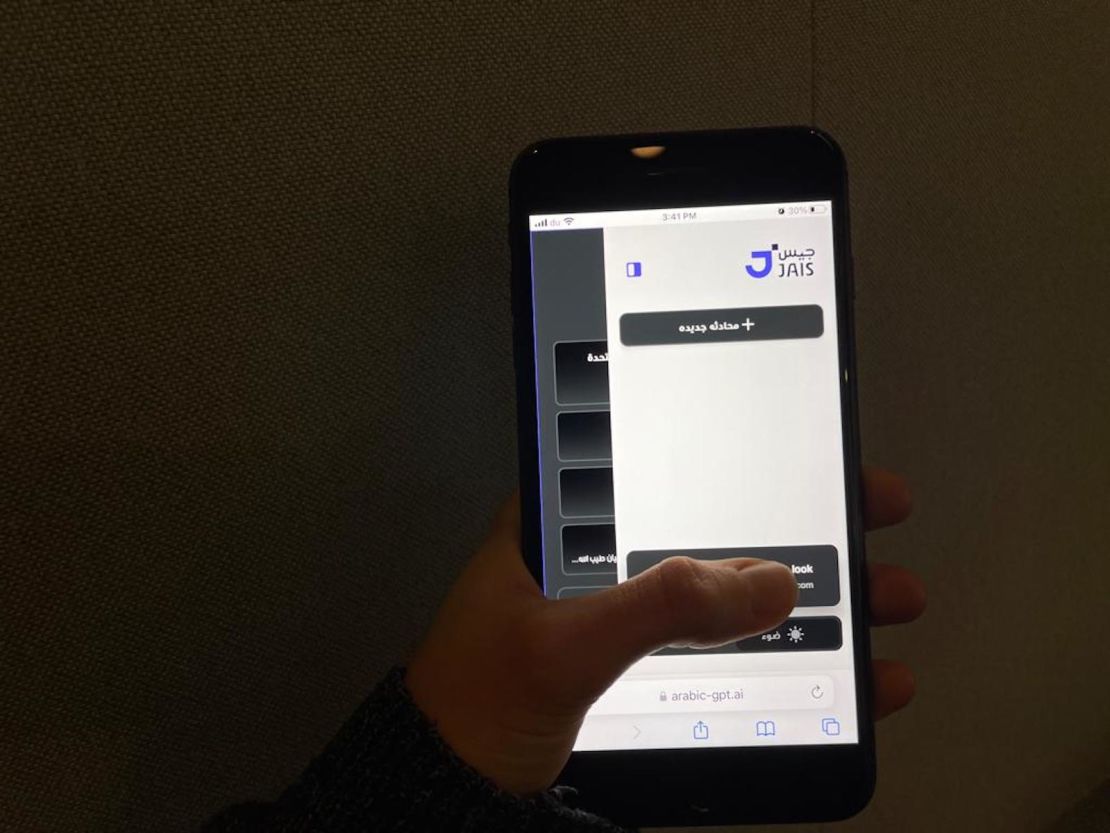The world’s first minister dedicated to developing artificial intelligence (AI) strategy is already becoming embroiled in a global power struggle for tech supremacy.
In April, Microsoft (MSFT) announced a $1.5 billion investment in G42, an AI group based in Abu Dhabi, capital of the United Arab Emirates (UAE), and chaired by an influential member of the ruling royal family.
The deal, which analysts say was motivated by the Biden administration’s desire to limit Beijing’s influence in the region as the US battles to maintain its lead over China in the AI race, firmly pulled the firm into the orbit of the United States.
“I think the UAE and the US really see eye to eye with regards to how these technologies are pushed forward,” UAE AI Minister Omar Al Olama, who was appointed in 2017, told CNN in a recent video interview. “I think we’re going to see more alignment there.”
G42, a holding firm, is comprised of seven companies that work across data centers, energy, healthcare, surveillance and biotechnology. Its controlling shareholder is Tahnoun bin Zayed Al Nahyan, who also serves as the UAE national security adviser.
The UAE is one of the world’s largest producers of fossil fuels, and Abu Dhabi sees its AI push as crucial for diversifying away from oil. AI could contribute $96 billion to the UAE economy by 2030, equivalent to nearly 14% of its gross domestic product, according to a report by PwC Middle East.
“We want to ensure that we are at the frontier of the technology, and that’s why we work with partners around the frontier,” said Olama, “and play by the rules that are set by the market leaders.”
Olama, whose ministerial remit includes digital economy and remote work applications, wants to make the UAE a global leader in artificial intelligence by 2031.

The UAE has laid out a national strategy to get there. Its objectives include deploying AI in priority sectors such as energy and logistics, developing an ecosystem and attracting talent. The country is putting public officials through AI training, and Dubai is aiming to teach a million citizens effective prompt engineering, instructing AI models to produce high-quality output.
As of September, the Gulf country had 120,000 people working on AI or related industries, up from 30,000 two years earlier, Al Olama has said.
Choosing sides
Sometimes, the country has had to prioritize its relationship with the US over Washington’s rivals.
A US Congressional committee called on the Commerce Department in January to investigate G42’s links to Chinese military companies and intelligence services (G42 denied any such connections), and the Microsoft investment required G42 to cut ties with Chinese hardware suppliers, reportedly including Huawei, in favor of US companies.
“The US does not shy away from saying that ‘on this technology specifically you need to choose sides,’” said Olama.
The UAE has historically performed a balancing act with its foreign policy. It cooperates with the US on a range of issues, including defense, and in recent years the US has sold tens of billions of dollars of military equipment to the Gulf nation.
The Biden administration, which sees maintaining a lead in AI as crucial for its future economic success and national security, has implemented a series of measures including export controls on AI and semiconductor technologies to slow China’s advancement in the industry.

Washington has also limited the sale of sophisticated US chips to ensure China doesn’t use Middle Eastern nations as a back door to access the newest AI technology, according to Reuters.
Nvidia, the world’s third biggest company after Microsoft and Apple, said in an August 2023 regulatory filing that the US government had informed the chipmaker that some of its products would face additional licensing requirements for “certain customers and other regions, including some countries in the Middle East.”
Some US politicians have raised concerns that they don’t have enough details about the deal between G42 and Microsoft and that US technology might be vulnerable to Chinese espionage in the UAE. The country has ties to Beijing, too, and China is a key trade partner.
Olama insists the UAE is a trustworthy partner. “I really don’t think that there is any risk, especially since there’s a lot of cutting-edge American technology that is in the UAE,” said Olama, adding that he was speaking in his personal capacity, not as a government official.
‘A leading tech power’
In late 2023, Abu Dhabi’s government-backed Technology Innovation Institute unveiled a large language model (LLM), the technology behind generative AI chatbots, called Falcon10B.
It outperformed offerings from Google and Meta by some metrics.
“The UAE put a stake in the ground in the AI race with Falcon,” James Lewis, who studies technology at the Center for Strategic and International Studies (CSIS), a Washington DC-based think tank, told CNN.
In October 2023, a collaboration between Abu Dhabi’s Mohamed bin Zayed University of Artificial Intelligence, Silicon Valley-based Cerebras Systems and Inception, a subsidiary of G42, produced Jais, a generative AI model trained on Arabic as well as English. Its creators said it could pave the way for LLMs in other languages that are “underrepresented in mainstream AI.”
Unlike ChatGPT and Google’s Gemini, Falcon and Jais are open-source, which means their code is available for anyone to use or change. By opening up the technology, Abu Dhabi is positioning itself as an ally to developing nations that don’t have the resources to build their own AI tools.

“We know that not every country can develop these systems or these tools,” said Olama. “So, we want to ensure that we’re able to develop it for them.”
Some analysts say the UAE’s vast oil wealth will be key in developing hugely expensive AI infrastructure.
“For me, it’s a financial story,” said Lewis. “It gives them an edge in terms of being one of the leading tech powers in the future.”
As fears grow about the potential risks of AI, Olama has called for a global coalition to regulate the development and use of the technology.
The stakes are high. In March, a report commissioned by the US State Department warned that the most advanced AI systems could, in a worst-case scenario, “pose an extinction-level threat to the human species.”
Olama has some specific concerns. He expects deepfakes will cause a “fundamental truth crisis” and could drive a “political crisis.” He’s also worried that AI could make it easier to create biotech weapons.
“I try not to be a fear mongerer,” he said, “but there are very few guardrails in place to ensure this doesn’t happen.”





